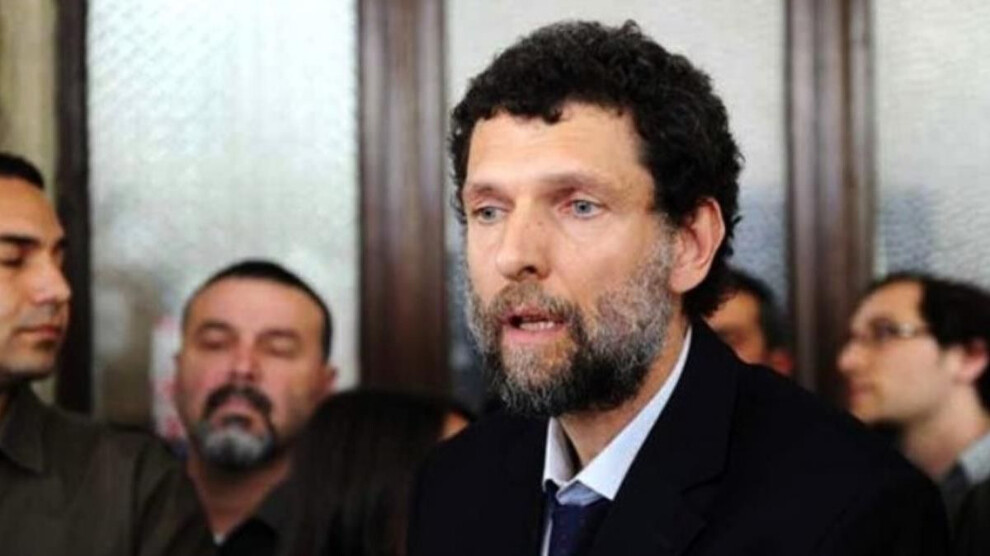IBAHRI condemns the sentencing of Osman Kavala to life-long imprisonment
Growing reactions against the sentencing of Osman Kavala, who was charged with ‘attempting to overthrow the government by force’ in relation to the Gezi Park protests.
Growing reactions against the sentencing of Osman Kavala, who was charged with ‘attempting to overthrow the government by force’ in relation to the Gezi Park protests.

The International Bar Association’s Human Rights Institute (IBAHRI) condemns the decision of Turkey’s Istanbul Heavy Penal Court on 25 April 2022 to sentence human rights defender Osman Kavala to life in prison without the possibility of parole. The verdict, following a marathon trial, demonstrates the Turkish authorities’ lack of commitment to the rule of law, judicial independence and regional obligations under the European Convention on Human Rights (ECHR). Instead, it exemplifies Turkey’s commitment to cracking down on dissent and freedom of assembly.
Kavala, a philanthropist who has set up numerous non-governmental organisations and civil society movements committed to protecting and promoting human rights, had been charged with ‘attempting to overthrow the government by force’ in relation to the Gezi Park protests – nationwide anti-government demonstrations that began as a sit-in by a group of environmentalists to contest the urban development of a park in central Istanbul.
IBAHRI Co-Chair and Immediate Past Secretary General of the Swedish Bar Association, Anne Ramberg Dr Jur hc commented: "The Kavala case verdict is a blatant disregard for the rule of law and judicial independence. The anti-terrorism laws that were used to bring charges against Kavala were a thinly veiled charade. The failure of Turkish prosecutors to adhere to international standards on the law of evidence in Kavala’s detainment and sentencing has not only led to a harsh misdirect of justice in his case but has likely set the tone for how prosecutions of human rights defenders are to be handled by the state. The IBAHRI unequivocally condemns the sentencing of Osman Kavala to life-long imprisonment without parole and calls for all charges and the decision to be nulled and for his liberty to be restored to him."
Kavala was initially arrested in October 2017 on charges of 'attempting to overthrow the government or to prevent it from exercising its functions’ (Article 312 of the Turkish Criminal Code). He was acquitted but immediately re-arrested for allegedly supporting the 2016 coup attempt and charged with ‘attempting to overthrow the constitutional order through force and violence’ (Article 309 of the Turkish Criminal Code). He was detained for almost four and a half years pending trial.
In 2019, the European Court of Human Rights (ECtHR) held that the detention of Kavala was ‘politically motivated’ and violated his right to liberty (Article 5.1) and the right to a speedy judicial review of detention (Article 5.4) under the ECHR. The Court also found his detention to be a restriction on rights for an improper purpose (Article 18) and emphasised that Turkish prosecutors had detained Kavala without sufficient evidence. As a result, the Court held that ‘the government must take every measure to put an end to the applicant’s detention and to secure his immediate release’.
In February 2022, the Committee of Ministers of the Council of Europe, which monitors implementation of the ECtHR’s rulings, referred Turkey back to the Court for the government’s refusal to release Kavala, in compliance with the Court’s ruling that he be released immediately. This step progressed infringement proceedings against Turkey due to its repeated failures in implementing the ECtHR’s decisions in the Kavala v Turkey case. The Turkish state now faces possible suspension from the Council of Europe.
IBAHRI Co-Chair Mark Stephens CBE stated: "The IBAHRI urges the appeals court to overturn immediately the Kavala verdict, in compliance with Turkey’s domestic and international legal obligations.’ Stephens added: ‘Kavala’s case serves as the litmus test of the shrinking civic space in Turkey and its targeting of those openly advocating for human rights and fundamental freedoms by weaponising anti-terror legislation and passing harsh sentences. Increasing persecution through censure by the Executive against Kavala and other civil and political rights activists, was commonplace throughout the case and undermined judicial independence. These same factors of systematic judicial harassment are also connected to the arrest of 1,600 lawyers throughout the country and sentencing totalling 2,966 years."
Charges levied by prosecutors against Kavala and 15 other defendants referred to counter-terrorism legislation on the basis of protecting national security. Seven of the 15 defendants were accused of assisting Kavala and have received 18-year sentences.